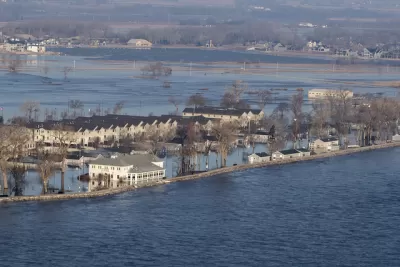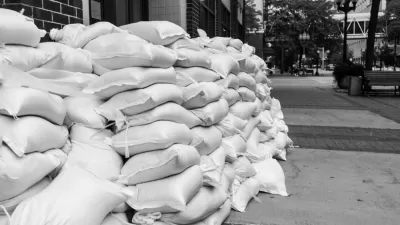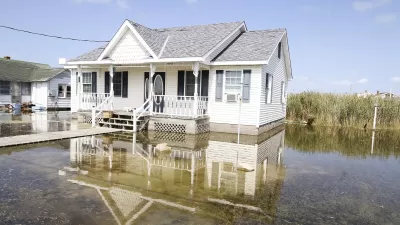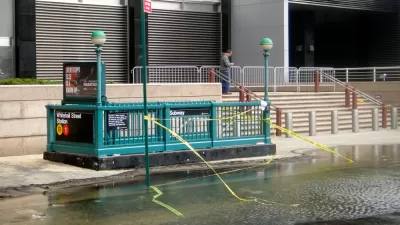The floodwaters still haven't subsided in parts of the Midwest, and lessons about climate change, extreme weather and proactive planning are badly needed to avoid similar catastrophes in the future.

Marshall Shepherd convened a panel of experts to examine lessons from the flooding that has ravaged the Midwest over the past week. Here's the lineup of experts:
- Brian Bledsoe, University of Georgia Athletic Association Professor of Resilient Infrastructure.
- Barb Mayes-Boustead, National Weather Service Meteorologist Instructor.
- Forbes Tompkins, Officer, Flood Prepared Communities, The Pew Charitable Trusts.
- Witold F. Krajewski, Rose & Joseph Summers Chair in Water Resources Engineering and Director, Iowa Flood Center.
- Mike Chesterfield, Director of Weather Presentation, The Weather Channel.
- Ken Dewey, Regional Climatologist, University of Nebraska.
- Steve Bowen, Director and Meteorologist, Aon.
Among the big points made in the analysis reported by Shepherd: the bomb cyclone was a "perfect storm" in its confluence of tragic events; other environmental factors played a role, like snowpack; and infrastructure played a role:
Most of the panel agreed that a combination of weather, water, climate, and infrastructure failure led to the disaster. Mayes-Bousted paraphrased a message from the U.S. Army Corp of Engineers that "all of the engineering around the Missouri River and its tributaries is designed to keep the majority of floods at bay, but not the most extreme of events."
In addition to discussion on other aspects of the disaster, the panel also made recommendations for how to move forward and better prepare for future extreme weather events. The state of Iowa's response to floods in 2008 is offered as one example to emulate.
A separate article by Gabriel H. Sanchez provides a photo series to illustrate the extent of the devastation.
FULL STORY: Four Lessons From 'Bomb Cyclone' Flooding In The Great Plains

Alabama: Trump Terminates Settlements for Black Communities Harmed By Raw Sewage
Trump deemed the landmark civil rights agreement “illegal DEI and environmental justice policy.”

Planetizen Federal Action Tracker
A weekly monitor of how Trump’s orders and actions are impacting planners and planning in America.

Why Should We Subsidize Public Transportation?
Many public transit agencies face financial stress due to rising costs, declining fare revenue, and declining subsidies. Transit advocates must provide a strong business case for increasing public transit funding.

Understanding Road Diets
An explainer from Momentum highlights the advantages of reducing vehicle lanes in favor of more bike, transit, and pedestrian infrastructure.

New California Law Regulates Warehouse Pollution
A new law tightens building and emissions regulations for large distribution warehouses to mitigate air pollution and traffic in surrounding communities.

Phoenix Announces Opening Date for Light Rail Extension
The South Central extension will connect South Phoenix to downtown and other major hubs starting on June 7.
Urban Design for Planners 1: Software Tools
This six-course series explores essential urban design concepts using open source software and equips planners with the tools they need to participate fully in the urban design process.
Planning for Universal Design
Learn the tools for implementing Universal Design in planning regulations.
Caltrans
Smith Gee Studio
Institute for Housing and Urban Development Studies (IHS)
City of Grandview
Harvard GSD Executive Education
Toledo-Lucas County Plan Commissions
Salt Lake City
NYU Wagner Graduate School of Public Service





























